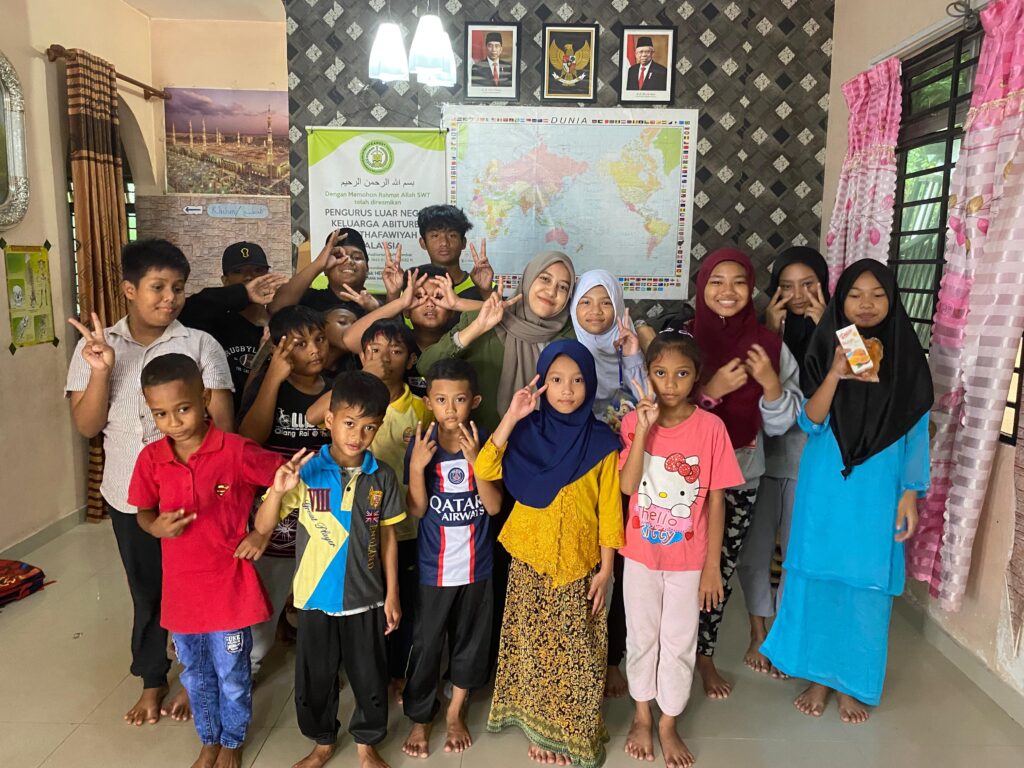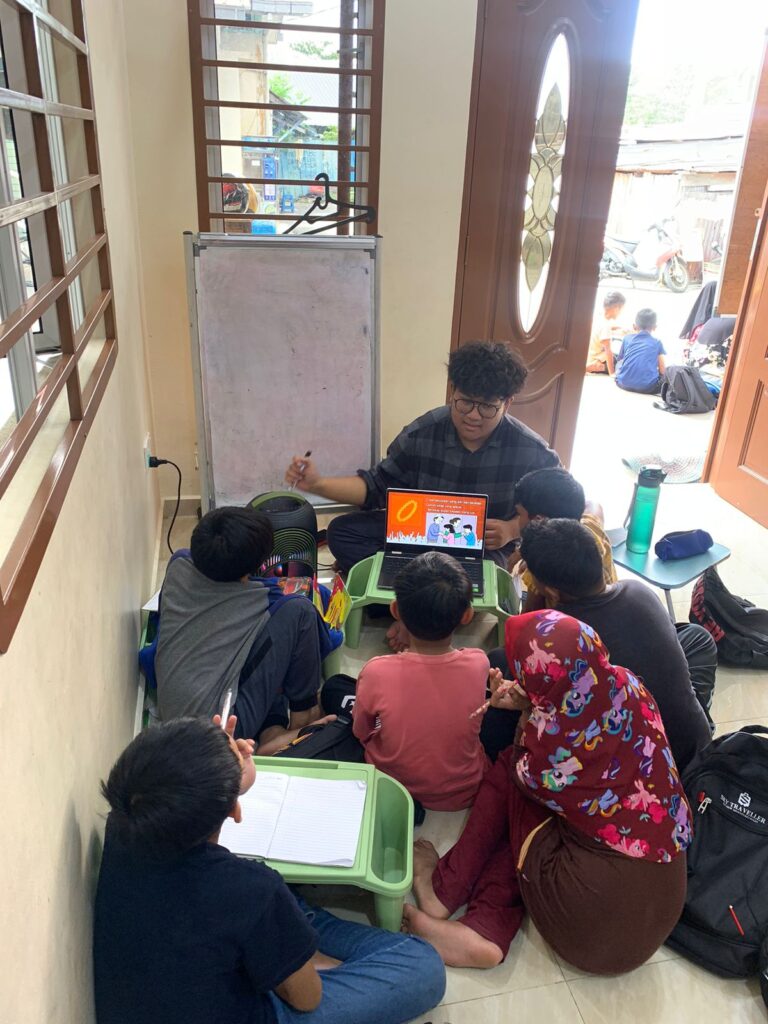
KISE – Even in our darkest moments, there’s always a ray of hope and opportunity. We consistently endeavor to embed this belief in the hearts of the children of illegal Indonesian Migrant Workers (PMI) in Malaysia.
The challenge of equal educational access remains a daunting obstacle for the Indonesian Government, impacting not just those within its borders but also its citizens abroad. In Malaysia, numerous children of illegal PMI find themselves deprived of education due to lacking residency documents—a consequence of choices made by their parents that inadvertently dim their prospects.
In response to this pressing issue, the Indonesian Embassy in Malaysia took significant strides by inaugurating “Sanggar Belajar,” an initiative designed to offer informal education to these children. This effort extends beyond borders, partnering with universities in Indonesia for community service projects, including the commendable Humanitarian Project spearheaded by MRPTNI and INTI International University.
The Humanitarian Project involved community service and a student exchange program that saw participation from 12 state universities across Indonesia. UPNVJT contributed by sending three students. As representatives from UPNVJT in the inaugural batch of this initiative, we encountered numerous obstacles. We were positioned in a “Sanggar Belajar” with limited resources and faced the challenge of engaging children who were unmotivated to learn, all while teaching without a structured curriculum. Additionally, some students struggled to grasp Indonesia’s core values, including basic etiquette and tolerance.

Driven by our commitment and concern, we initiated “Indonesian Culture Beyond Borders,” a mini-educational venture to foster Indonesian values and identity. Through engaging and interactive methods—be it films, puzzles, crafts, or quizzes—we endeavored to instill principles of Pancasila, unity in diversity, and tolerance, alongside the fundamental importance of respect and empathy. Our goal was to educate and nurture a compassionate and tolerant generation.
Our mini-educational project was implemented across three different “Sanggar Belajar,” we observed some students’ progress over time. They began to show an eagerness to learn and were able to incorporate Pancasila values like tolerance and basic manners into their daily routines. We celebrated every small achievement by rewarding the students and motivating them to strive to become better individuals.
Starting from limitations and challenges can ultimately catalyze realizing one’s dreams. We see our role as part of Indonesia’s youth in educating the children of illegal PMI, equipping them with the essential skills and knowledge for a brighter future. We believe the execution of this program will positively affect the students’ development, especially in promoting respect and nurturing future aspirations. Involving parents is crucial in shaping their children to become the next generation conscious of national culture and values, establishing a solid foundation for further academic pursuits. Learning is a lifelong journey, and change is the ultimate result of all authentic learning. We believe that each small step taken today will significantly impact tomorrow.
Author: Titus Wirangga Shakti, Public Administration. Edited by: KISE
